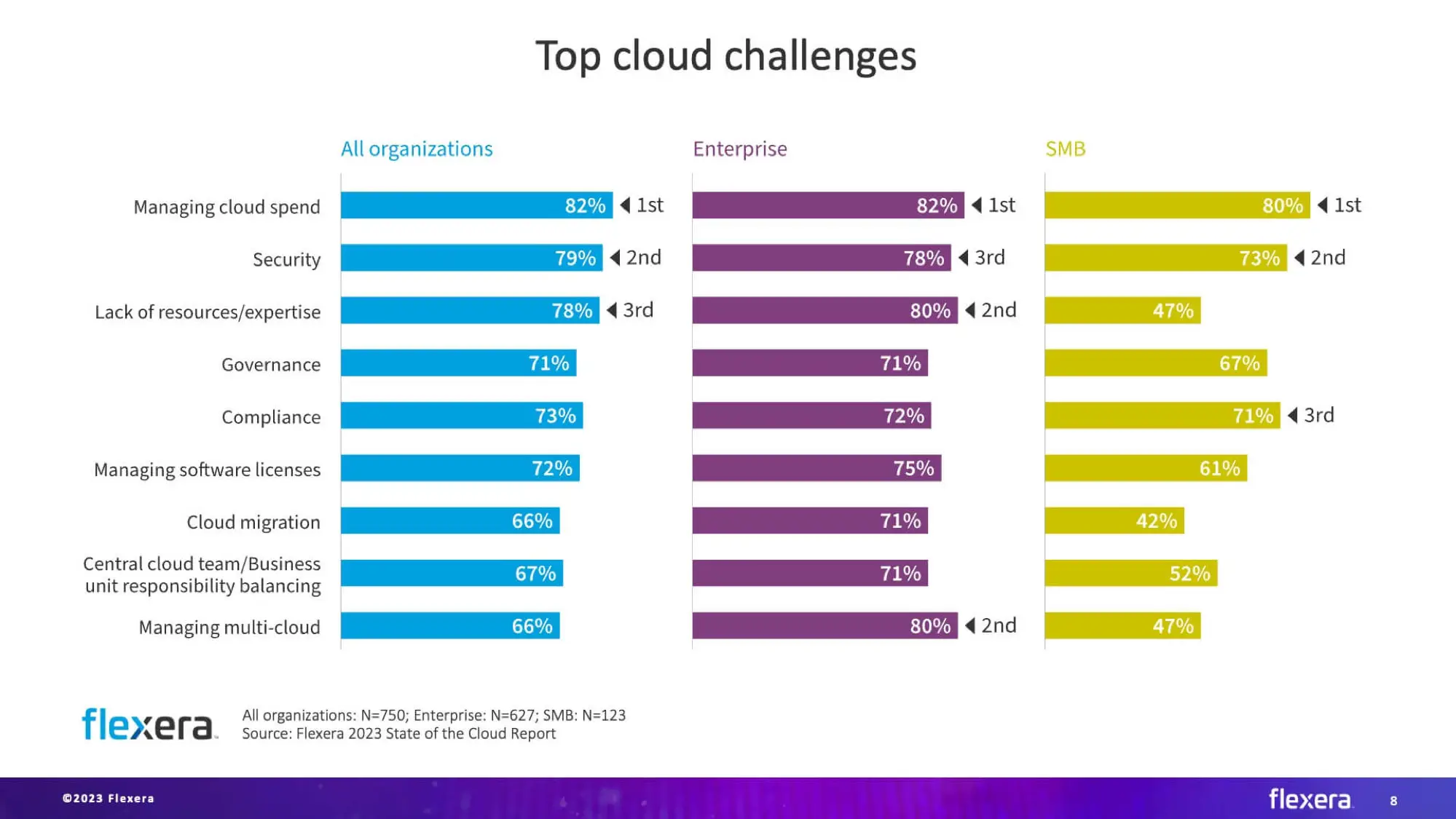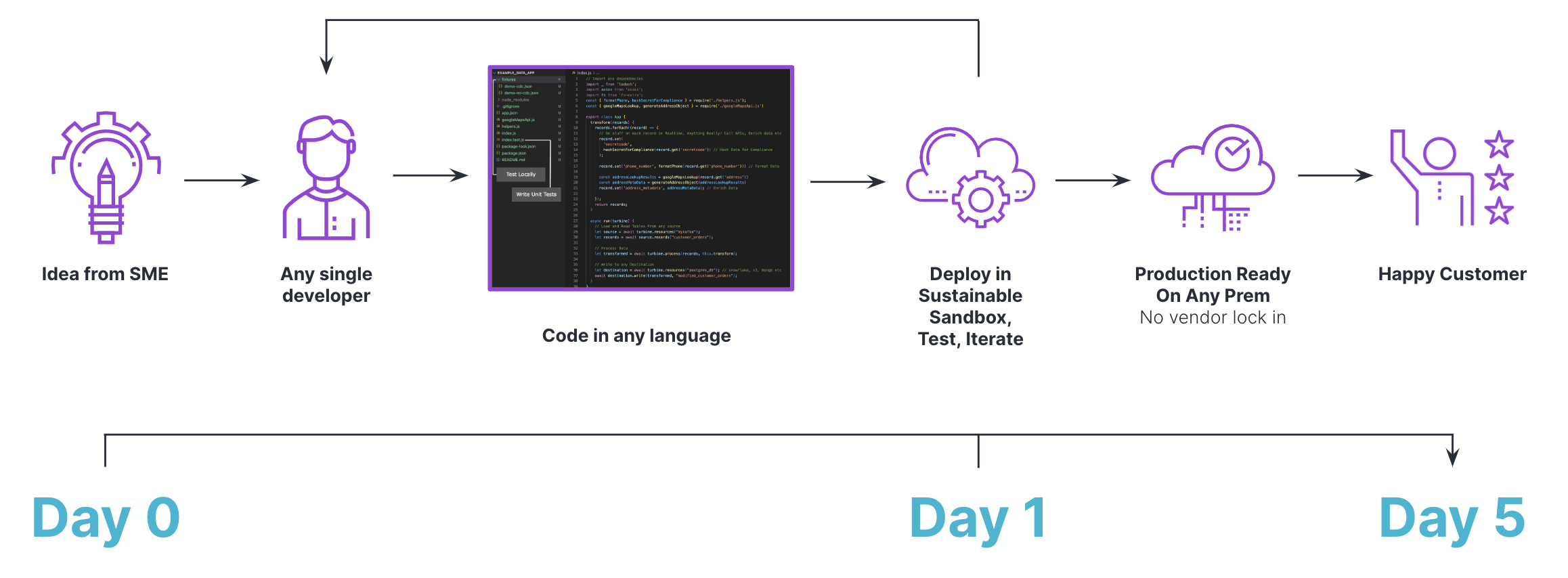
If you drive a Tesla or any other electric vehicle, you realize the cost and limitations when a utility such as electricity is not available as a commodity. Electric vehicle owners today are limited to only having access to electricity from a single proprietary delivery platform. As a result, electric vehicle owners spend more money to access what should be a commodity.
Similarly, cloud storage was supposed to be a utility, but it has the same proprietary access with limited integrations. Cloud vendors today allow access to data, as long as it's stored or accessed from their cloud, requiring users to exclusively use their cloud services. As a result, very few companies enjoy the benefits of multi-cloud and are locked into using a single cloud provider. We know this is true due to the increasing number of Chief Cloud Economist roles being established to oversee the costs associated with cloud services.
What should be a commodity like oil is instead locking customers into high prices, and ultimately limiting potential for innovation and a multi-cloud enterprise strategy. Cloud data storage itself is not proprietary, but since the integrations built to support that cloud storage is proprietary, data cannot be a commodity and is therefore nothing like oil.
So how do cloud platform vendors have you over the barrel?
Cloud vendors have you tied to their platform, simply because all the integrations to that data are customized, limited, and proprietary to only their cloud platform. You may want to purchase another cloud vendor, but you can’t because the integration stack only works for their cloud.
Unfortunately, cloud storage vendors will never provide multi-cloud integrations, making it challenging for customers to compare and choose a storage provider based on features and price. Cloud vendors don’t want multi-cloud environments, because having proprietary rights to your data gives them an advantage by locking you in, resulting in a premium to you. It has been and always will be this way. It would be unwise to assume anything different. Additionally, cloud vendors even penalize you for switching/migrating data to another platform.
The cloud lock-in becomes painfully apparent when your Cloud Utility bill reaches millions of dollars, and there becomes a need to develop new skills within the organization for cloud accounting.

In order for cloud storage to truly be as valuable as oil, you have to have a multi-cloud strategy from a neutral third-party vendor.
What is an example of a successful third-party vendor and how will that change in the next 3 years?
Informatica is a good example of a neutral 3rd party vendor that enabled uniform integration with multiple data stores. Before Informatica became an enterprise leader in ETL, the Relational Database Management System (RDBMS) vendors (i.e. Oracle, Sybase) provided their own ETL tool that was customized for only their RDBMS. Customers gained tremendously by using a neutral third-party vendor such as Informatica, which allowed standardization of data integrations across all RDBMS. Informatica enabled data became more of a commodity across storage platforms. Similarly, today, data needs to become more of a commodity across clouds and data lakes.
The actual cost of proprietary single cloud storage is the loss of competitive advantage to companies that transition from “platform-led” to “developer-led” discovery.
If you overspend on cloud resources because you have no choice and all your integrations are proprietary, you will have to resort to only looking at data that is absolutely needed. That has always been the downside of a “platform-led” approach to discovery. The cost of cloud will limit your ability to experiment with and explore new data. All the data that your business users suspect might be valuable but aren’t sure about because it’s too expensive to evaluate, will be left behind. However, companies that transition to “developer-led” will figure out how to make the cloud a utility, and can then afford discovery and exploration. They will have tools that enable a top-down, “developer-led” flexible approach to triaging data.
Meanwhile, your company will unfortunately be stuck with a lock-and-load “platform-led” approach with a single cloud vendor that performs queries at incredible speeds, but also at incredible costs and rigidity. There has always been too much emphasis on optimizing the vendor platform per known queries and not enough focus on supporting discovery and exploration. Data platforms have never focused on new data that business users might find valuable. This “platform-led” approach never afforded the luxury of storing everything that anybody thought might be valuable and then hoping for the best. To remain competitive, companies need to change how they approach data discovery and exploration. Modern data architectures will have to move towards a more flexible and open “developer-led” approach that allows for experimentation and discovery.
The innovations needed will occur at the front-end of integration with the business user, not at the storage end. This will be explored further in my next blog.
How do you create a neutral data integration strategy that is not biased toward a single cloud or even toward a cloud at all?
Enabling a multi-cloud design and reducing cloud costs doesn’t need to be difficult. Using the right tool that gives you the flexibility to work with your data regardless of where it lives can help you create a neutral data integration strategy. At Meroxa, we offer a code-first approach to data integration, resulting in cloud neutrality and making data a commodity just like oil.
What makes Meroxa different than other platforms:
- Code-First - Developers of any skill level can build data products in the language of their choice with the ultimate flexibility that code provides. Companies do not need subject matter experts to work with their data. In just 4 lines of code you can move data around like a commodity, to and from any cloud vendor.
- Open-Source - Built on open-source technology this gives enterprises the security and flexibility they need. No vendor lock-in & connectors for any data store (databases, cloud, SaaS apps, APIs, data lakes, and messaging systems) make it simple for organizations to readily access that data and work with it. Reliable production-ready connectors for any data can be built in warp speed using our open-source libraries.
- Easily manage hundreds of integrations - Meroxa automatically creates a shared data stream catalog and embeds it into your workflows so you can search, find, and reuse data streams effortlessly across all the programming languages. Building scalable and reusable development artifacts across clouds, programming languages and projects makes developing with data significantly faster than traditional approaches.
- Build, Test, Iterate, Deploy - Build your stream processing application using a language of your choice, test with data samples that reflect your production environment, iterate as many times as needed, and then deploy your application, ultimately reaching business conclusions quicker with minimal effort and resources.

Conclusion
Meroxa is the only independent streaming integration vendor critical to be able to treat data like oil, because we have a unique and disruptive code-first approach.
“You can manage the cloud vendors, or they will manage you. Meroxa gives you that with just 4 lines of code.”
Meroxa can help turn your data into a commodity. Companies that realize the value of a "developer-led" vs. “platform-led” data strategy can quickly reduce their cloud costs and achieve a multi-cloud environment. With Meroxa being the only independent streaming integration platform able to treat data like a commodity, our customers have been able to realize tremendous value. To learn more about how Meroxa can help transform your data strategy, schedule a demo today.
